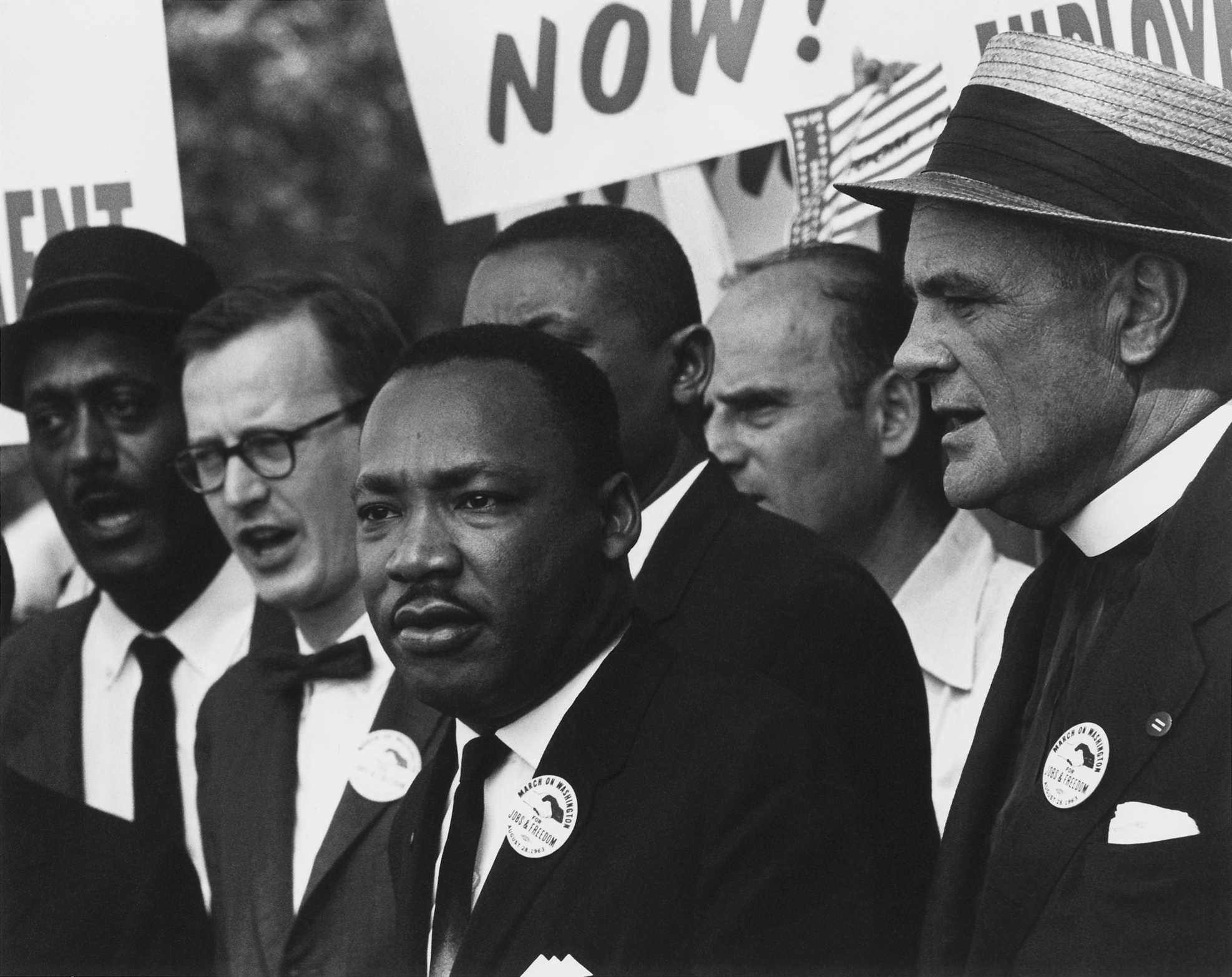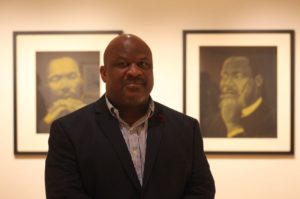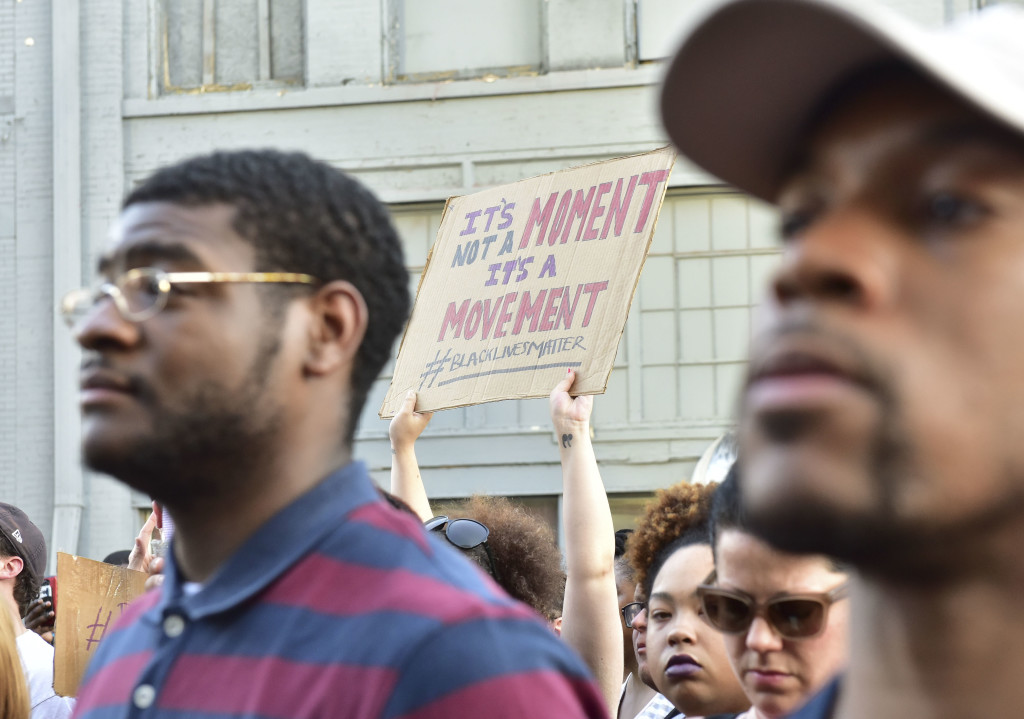
By TMH Crawford
For the Birmingham Times

“I have some very sad news for all of you, and, I think, sad news for all of our fellow citizens, and people who love peace all over the world; and that is that Martin Luther King was shot and was killed tonight …,” said former U.S. Attorney General and 1968 Democratic Party Presidential Nominee Robert F. Kennedy to a shocked, saddened Indianapolis crowd.
At 6:01 p.m. on Thursday, April 4, 1968, the Rev. Dr. Martin Luther King Jr. was assassinated while standing on a balcony outside his second-floor room at the Lorraine Motel in Memphis, Tenn. He was there to support a sanitation workers’ strike and was on his way to dinner when a bullet struck him; he was pronounced dead after his arrival at a local hospital.
Fifty years after King’s life and light were extinguished by an assassin’s bullet—less than three months after the icon’s 39th birthday—his legacy still resonates around the globe, across America, and in Birmingham.
“I’ve had African-American bosses, which would have never happened in 1968,” said Pamela King, a University of Alabama at Birmingham (UAB) history professor who specializes in studies related to Birmingham, Jim Crow, and the Civil Rights Movement. “I’ve dated outside of my race. It may not seem like a lot, but those things were taboo in 1968. You would not go to the theater, restaurants, or do anything else with black people. That’s just a huge, huge change by itself.”

Barry McNealy, education program consultant at the Birmingham Civil Rights Institute (BCRI), said change has occurred not only among the races but in city government, as well.
“Look at the City Council today,” he said. “It is made up of black people and white people, and the mayor of Birmingham is a young African-American man. In 1968, those things would not have been possible. It wasn’t until the early 1970s that Birmingham had its first black city councilman. In the 50 years that King has been gone, Birmingham has undergone a number of very notable changes.”
Global Icon
King’s impact is undeniable worldwide, too.
In the essay “Martin Luther King Jr. and Africa: Then and Now,” William G. Jones, PhD, writes, “While a significant amount of time and events have passed since his death, as with other great world leaders and political philosophers, King’s contributions have proven timeless.”
Since King’s death, like most luminaries, he has been the focal point of a broad range of research.
“Indeed, King is a global icon of freedom, justice, and equality. He is recognized as a beacon in the struggles of peoples worldwide seeking to eradicate conditions of oppression, including entrenched poverty and social deprivation, frequently reinforced by political and economic disfranchisement,” according to professors Michael Clemons, Donathan L. Brown, and William H.L. Dorsey in the introduction to “Dream and Legacy: Dr. Martin Luther King in the Post–Civil Rights Era,” a volume of essays published in 2017.
“The elevation of King to ‘hero status’ in American history and the growing acceptance of him by the American public arguably began with the national movement to institute his birthday as a national holiday… This honor ensconced King as a proponent and champion of freedom and justice for not only the nation’s but also the world’s downtrodden.”
Example for the World
In “The Universal King? Memory, Globalization, and Martin Luther King Jr.,” Yale University doctoral candidate Isabel Jijon examines how King has been “remembered and represented” worldwide during different times of his life. Her research points out that “King is … [considered] an example for the world, ‘inspiring activists from Tiananmen Square to Soweto, Eastern Europe to the West Bank.’”
Jijon continues, “In the United States, King is honored with a national holiday, a national and several local memorials, and close to 900 streets in his name. [He is] remembered around the world, [as well]. There are roads named after King in Italy, India, Brazil, and Niger. There is a school named after King in Cameroon. There is a Martin Luther King bridge in Burkina Faso. Every year, there are banquets on King’s birthday in Hiroshima.”
Not Satisfied
King’s legacy is etched on calendars and emblazoned on street signs. King’s legacy paved the way for significant progress, including the election of Barack Obama, the first African-American U.S. president, in 2008—40 years after King’s assassination. Yet despite King’s legacy, blacks in 2018 face many of the same challenges they faced in 1968.
In “Black Americans Mostly Left Behind by Progress Since Dr. King’s Death,” Sharon Austin, associate professor of political science and director of African-American studies at the University of Florida, points out that, “Today’s black poverty rate of 22 percent is almost three times that of whites. Compared to the 1968 rate of 32 percent, there’s not been a huge improvement.
“Financial security, too, still differs dramatically by race. Black households earn $57.30 for every $100 in income earned by white families. … black Americans today are also more dependent on government aid than they were in 1968. Currently, almost 40 percent of African-Americans are poor enough to qualify for welfare, housing assistance, and other government programs that offer modest support to families living under the poverty line.”
African-Americans still deal with high rates of unemployment and incarceration, and are often victims of police brutality. These conditions lead many scholars to wonder if he would be satisfied with the progress made after his death.
In his seminal 1963 “I Have a Dream” speech, King said, “When will you be satisfied? We can never be satisfied as long as the Negro is the victim of the unspeakable horrors of police brutality. … We cannot be satisfied as long as the Negro’s basic mobility is from a smaller ghetto to a larger one. We can never be satisfied as long as our children are stripped of their self-hood and robbed of their dignity. … We cannot be satisfied as long as a Negro in Mississippi cannot vote and a Negro in New York believes he has nothing for which to vote.
“No, no, we are not satisfied, and we will not be satisfied until ‘justice rolls down like waters, and righteousness like a mighty stream.’”
Alvin Plexico, PhD, in “I Have a Dream: A Report Card Fifty Years After Dr. King’s Assassination” says, [we must] “… gain an appreciation of how far we’ve come, while making an honest assessment of how far we need to go. While acknowledging the work that needs to be done, we should build on the progress we have made.”
Plexico cites the 2015 speech given by President Obama during the 50th commemoration of the Selma to Montgomery marches for voting rights.
“He offered this insight: ‘If you think nothing’s changed in the past 50 years, ask somebody who lived through Selma or Chicago or Los Angeles in the 1950s. … To deny this progress—our progress—would be to rob us of our own agency, … our responsibility to do what we can to make America better.
‘We know the march is not yet won. … America is a constant work in progress; … loving this country requires more than singing its praises or avoiding uncomfortable truths. It requires the occasional disruption, the willingness to speak out for what is right, to shake up the status quo.’”
‘A Dream Deferred?’
That is exactly what King and the Civil Rights Movement did—shake up the status quo.
“Throughout the tumultuous 1950s and 1960s, King led the Civil Rights community in their quest for racial equality by challenging the status quo, focusing heavily on voting, economic equality, and integration,” according to political science professors Byron D’Andra Orey, Lakeyta M. Bonnette-Bailey, and Athena M. King in the essay “A Dream that Occurred or a Dream Deferred? Race Relations from Dr. Martin Luther King Jr. to President Barack Hussein Obama.”
But, they write, “Since King’s death in 1968, America’s racial progress can be described as mixed at best.”
Inequality and injustice—and the often-violent reactions to both—made headlines in the late 1960s and have consistently made headlines since.
When King was assassinated, “America exploded that night with riots in 100 cities, leaving 39 people dead and more than 2,500 injured,” points out Washington Post Nonfiction Editor Steven Livingston in “Kennedy and King: The President, the Pastor, and the Battle Over Civil Rights.”
Today, violent protests and civil unrest still break out in response to injustice—think Liberty City, Fla., in 1989; Los Angeles, Calif., in 1993; Ferguson, Mo., in 2014; Baltimore, Md., in 2015.
“In the past 50 years, after the promise of racial equality emerged in the early 1960s, America has stumbled backward,” Livingston notes. “The progress implied by integration and voting rights legislation in the 60s and by the flowering of new freedoms—political, racial, sexual—has stalled.

“In … Obama we [had] a black president. But in alarming numbers, police in recent years have killed black [people] under suspicious circumstances. The names Eric Garner, Michael Brown, Tamir Rice, Freddie Grey have become part of our culture in discussions of deadly police brutality.
“Despite the Supreme Court’s Brown v. Board of Education ruling in 1954, America has still failed to end school segregation. The proportion of schools intensively segregated—meaning they contained more than 90 percent of low-income students and students of color—more than doubled between 2001 and 2014.
“Meanwhile, states across the country—Texas, North Carolina, Wisconsin, Ohio, Kansas—made it more difficult over the years for minorities to vote; gradually some of those obstructions were reduced but only through a series of court actions.”
Professors Orey, Bonnette-Bailey, and King write, “We … suspect that King would be disappointed in some areas where race relations continue to struggle.”
Lingering Pain
For many in the U.S., that struggle remains a source of pain a half-century after King’s death. In “50 Years Later: Why the Murder of Dr. King Still Hurts,” author and political analyst Earl Ofari Hutchinson writes, “The 50th anniversary of [King’s] assassination … is the time to reposition [him] once more into the mainstream of the ongoing struggle for reform … [in America’s] inner cities.
“King’s murder by no means ended his impact and influence on the leaders, organizations, events, and changes that he envisioned and fought for. The nation continues to grapple with many of those problems today.”
Strength for the Future

Despite sometimes grim circumstances, “King’s life remains a reservoir from which the nation and the world can continue to draw knowledge and strength into the foreseeable future,” writes Clemons in “King’s Enduring Relevance,” the epilogue to “Dream and Legacy.”
“The social, political, and economic challenges that prevail in the 21st century are testaments to the importance of scholars’ continued efforts to ferret out details from King’s extensive legacy,” he notes.
Livingston points out that, “as bleak as conditions sometimes looked to him in the early years, the Rev. Martin Luther King resisted … pessimism. … In the role of activist, pastor, and educator, King had to be relentless.”
Fifty years after King’s death, the legacy of his relentlessness fuels movements like Black Lives Matter, Time’s Up, #MeToo, #NeverAgain. The legacy of King’s relentlessness fuels a challenge put forth by Robert Kennedy to his shocked, saddened Indianapolis audience—a challenge that remains relevant today.
Just two months before Kennedy, too, would be slain by an assassin’s bullet, he exhorted the crowd: “In this difficult day, in this difficult time for the United States, it’s perhaps well to ask [this:] what kind of a nation [are we], and what direction we want to move in?”



